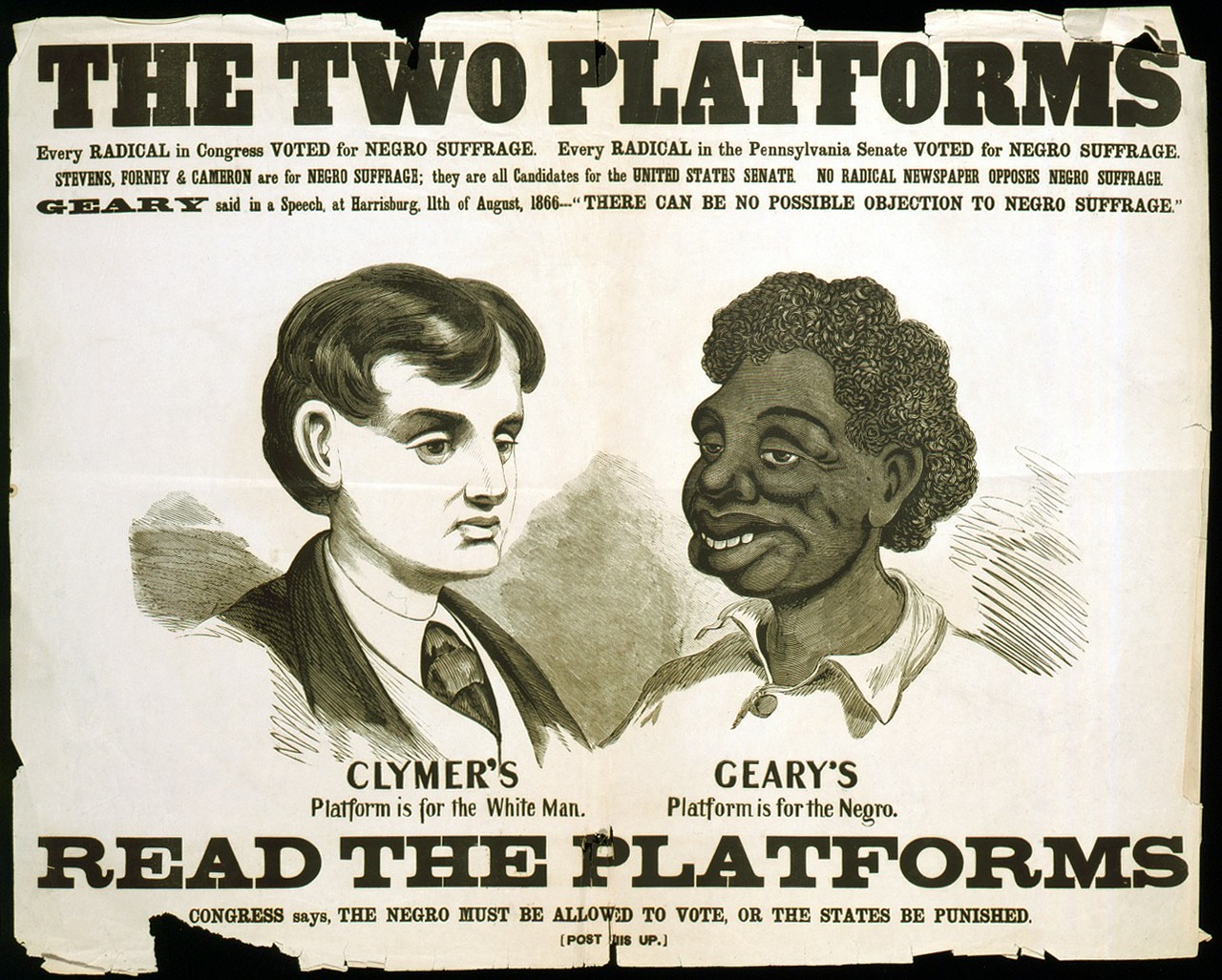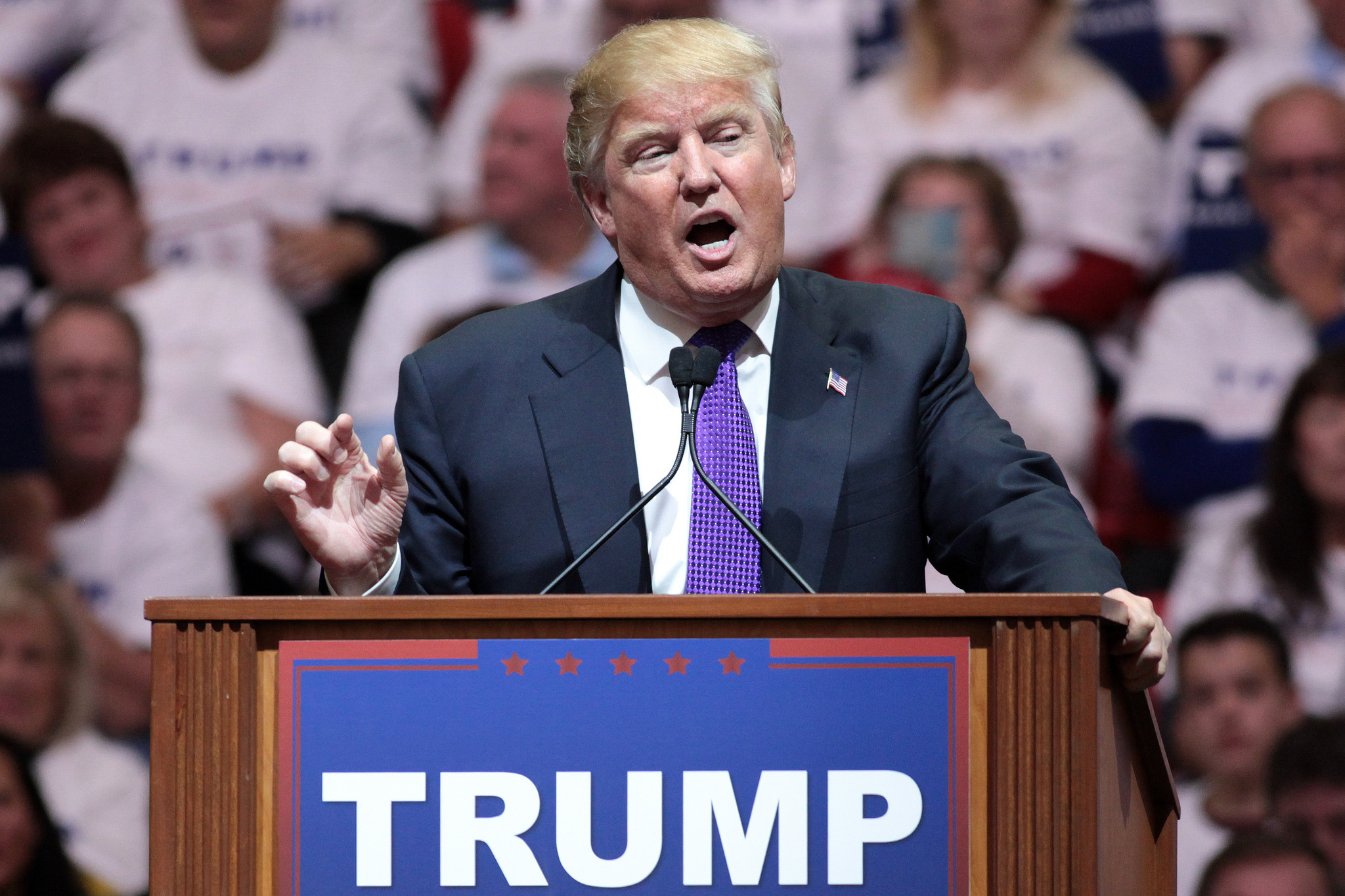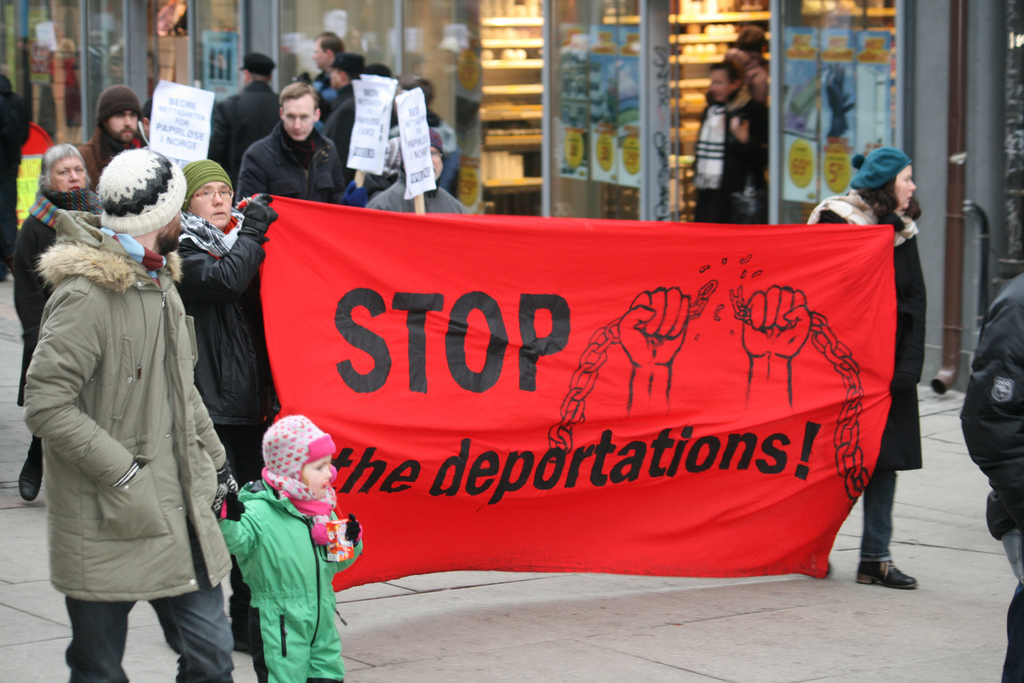Make America Great Again. It was the campaign slogan that Donald Trump ran on in one of the most controversial presidential campaigns in recent history. Trump had some characteristic campaign promises like no cuts to Medicaid or Social Security, simplifying the tax code, and providing better healthcare for all citizens. However, he also managed to tap into one of the darkest elements of American society: an intrinsic fear of diversity (made possible by the Republican party’s use of the Southern strategy). Or as most African Americans, and other minority groups call it: racism.
In the photo: Campaign poster from 1866 Pennsylvania gubernatorial race. Photo credit: Pixabay
The rhetoric used by Trump eventually paid off and he was elected the 45th president of the United States. Upon his inauguration, Trump began to make good on his many campaign promises. He instituted two Muslim bans, through executive order (struck down by the courts both times), de-funded life-saving services at Planned Parenthood, continued the use of ICE agents to round up undocumented black and brown immigrants, and many other harmful policies directed at marginalized groups. While these actions by Trump have gotten massive media coverage, it wasn’t until the debacle of the ACA repeal that we began to hear about the effects of certain policies on specific groups of people.
Related article: ONE FOR ALL – PRESIDENT DONALD TRUMP? by Rushna Shahid
As Trump’s harmful and dangerous executive orders and GOP policies began to roll out—it became obvious not even his voters would be excluded—media outlets began to put forward more stories about regretful Trump voters. In one story, a Trump voter from Texas was surprised when her undocumented husband was deported since she thought only the “bad ones” (referring to undocumented immigrants) would have to leave. Another instance is an elderly Georgia woman who stands to lose her access to Meals on Wheels, due to Trump and the GOP’s budget cuts.
When Trump voters began to realize that some of his policies would affect them, many began to pressure their representatives in Congress to object to certain nominations and policies. This was accomplished through town halls, media interviews, and phone campaigns to their representatives. The sentiment from these Trump voters appears to be the same. We knew Trump was going to do harmful things, we just didn’t think it would affect us.
In this photo: Donald Trump speaking with supporters at a campaign rally at the South Point Arena in Las Vegas, Nevada. Photo Credit: Gage Skidmore/ Flickr
The United States has yet to come to terms with (and properly rectify) its brutal history towards marginalized groups–such as African Americans, indigenous people, transgender people, women, and many others. However, these same groups of people are often expected to empathize with those who are indifferent to their struggles.
This is why the focus media outlets have on Trump supporters being harmed is so puzzling. The framing of these stories suggest that more empathy should be given to those who voted for Trump IN SPITE OF his inflammatory rhetoric, as opposed to the groups he promised to harm.
What do we insinuate by focusing our attention on Trump voters being harmed by his policies, yet ignoring much of the population (who didn’t vote for him) that are being explicitly targeted by his administration?
Where are the anecdotal stories about the transgender children and adults who have been placed in greater danger by the revocation of transgender student protections by the Trump Administration? In North Carolina, this revocation combined with the pseudo repeal of the disastrous HB-2 (dubbed the “bathroom bill”) law has led many transgender youth and adults to feel unsafe and targeted with physical harm for living their lives.
Where is the empathy for undocumented black and brown immigrants who are being targeted by ICE agents using checkpoints outside of schools, daycares, etcetera? For the women who are victims of domestic violence in these communities, who won’t come forth out of fear of being deported?
Photo credit: GGAADD/Flickr
Where are the stories about African Americans, Muslims, Latinos/Hispanics, and countless others who have become victims in the increase of hate crimes since Trump was elected?
A popular quote from legendary poet and writer, Maya Angelou says, “When someone shows you who they are, believe them the first time.” From his claim that Mexico was sending rapists into the U.S. to the assertion that African Americans should vote for him because they have nothing to lose, Trump has been honest about the person he truly is.
The one consistent thing about Trump, has been his adherence to harming marginalized groups. Trump’s campaign strategy of using marginalized groups as scapegoats was more easily achieved since media outlets provided Trump with hours of coverage daily. However, within this continuous coverage, a message was missing. If Trump was to be elected and actually did everything he said he would, how would the various marginalized groups he mentioned be affected?
The groups being targeted by the Trump administration could probably answer this question, but it would require media outlets to pick up the stories. The media has a large influence in what the American public decides is important. Right now it appears that Trump voters being harmed by policies Trump promised to enact is on the list. The U.S has a long history of ignoring and targeting its most vulnerable populations, and the effects of that position have been exploited by Trump and the Republican party.
Instead of focusing on the effects of those who willingly chose to elect a man of questionable character to the White House, a more useful task would be to focus on those who had/have no control over the harm inflicted on their communities by an out-of-control administration.
Recommended reading: “MORE THAN HURT FEELINGS: THE REAL DANGER OF HATE SPEECH“













